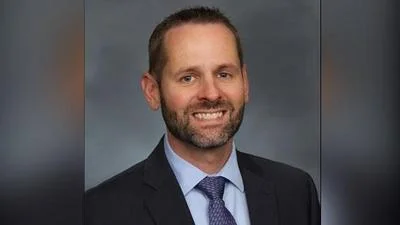John Ekonomou | Facebook / John Ekonomou
John Ekonomou | Facebook / John Ekonomou
Chicago attorney John Ekonomou is calling out the pension of former superintendent of Community Consolidated School District 181 Mary Curley as emblematic of the problems with pension spiking in the state.
“Pension spiking is wrong and it should be abolished. It is one of the reasons that this state's pension fund is bankrupt. Quite frankly, if it went under I wouldn't cry about it,” Ekonomou posted on Facebook.
Ekonomou shared an article in Illinois Policy revealing the figures Curley has been receiving as a pensioner.
“Mary Curley, the former superintendent of Community Consolidated School District 181 in Hinsdale and Clarendon Hills, is currently receiving a pension of $315,336, according to the Patch. Curley’s pension began at $226,644 when she retired in 2007 at age 55 but has grown thanks to 3% compounding pension increases each year. By the end of her life, Curley could receive a pension upwards of $521,000 annually,” Illinois Policy wrote. “In Curley’s final two years with the district, she received two 20% salary increases. Between 2005 and 2007, her salary skyrocketed to $385,378 from $267,624. When adjusted for inflation, her final salary would have been $477,277 today. The current superintendent makes $249,832."
Pension spiking comes at a large cost to taxpayers and results in money being diverted from school districts to retired employees. According to records obtained by The Center Square, in school years 2018-2019 and 2019-2020 school districts provided $8,839,754.35 to the Teachers' Retirement System of the state of Illinois for salary and excess sick time payments to end-of-career educators.
"In the first 10 years of the program, 2005 to 2015, the excess salary contributions levied against school districts totaled $149.5 million, or an average of $14.95 million per year," Dave Urbanek, director of communications for the Teachers’ Retirement System of the state of Illinois, told The Center Square. "However, because of exemptions to the 6% threshold built into the law at that time, districts paid only $39 million during that decade, or an average of $3.9 million per year."
In 2019 the Illinois Education Association, the state’s teachers union, restored the ability to allow a 6% pension spike in a school employee’s final years. That repealed a previous measure that limited such pension spikes to 3 percent. The IEA’s campaign was named “Repeal the 3%,” according to Forbes.





 Alerts Sign-up
Alerts Sign-up